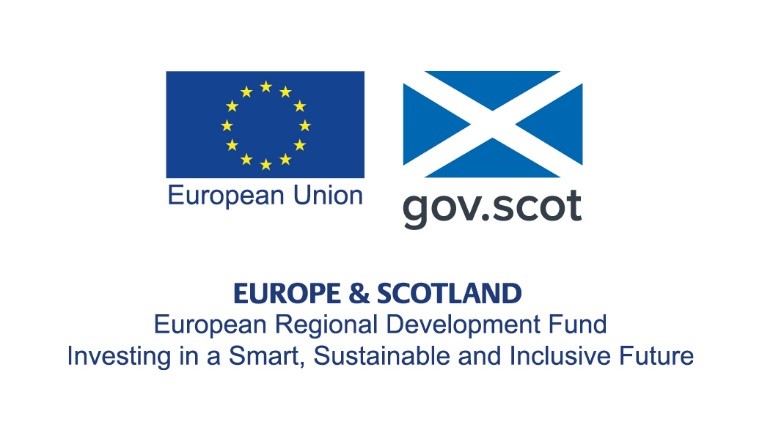

CMAC and PwC are delighted to share ‘The Business Case Insights for Continuous Manufacturing’. This joint document, with input from industrial partners, seeks to review key considerations for building a successful business case for the industrial adoption of innovative Continuous Manufacturing (CM) technologies.
The report is written from the perspective of the CMAC manufacturing research programme stakeholders. Hence, it targets factors directly relevant to continuous small molecule pharmaceutical manufacture and although addresses the many drivers and impacts across the entire value chain, brings a strong emphasis on factors relevant to continuous drug substance manufacture.
With the associated growth in new technologies and services comes the opportunity for different business models that exploit CM to deliver additional value and tackle major challenges facing the sector: how are we to manage spiralling prescription medicine costs in the NHS and other global healthcare systems; can the pharmaceutical supply chain deliver greater personalisation of medicines quickly and cost effectively; can the security of global medicines supply be assured to maintain access to essential medicines or respond to medical emergencies; how can the impact of medicines manufacture on the environment be minimised and made more sustainable? Those that can best harness the potential of innovative technologies such as CM will be best placed to meet these challenges.
Nine critical considerations have been highlighted for business case development. Through each of these lenses, a holistic case for continuous manufacturing can be progressed to help drive the uptake of this currently novel technology.
Please view full document here
This document was undertaken with engagement from CMAC Tier 1 partners AstraZeneca, Eli Lilly, Pfizer and Takeda as well as leveraging CMAC’s own extensive academic portfolio on end-to-end (E2E) processing. CMAC would like to thank all those who have contributed information and viewpoints on key technical aspects in combination with PwC’s wider business case perspective, to help inform and engage senior stakeholders and drive continuous manufacturing forward.
CPI, an independent technology innovation centre and founding member of the UK Government’s High Value Manufacturing Catapult, has today announced the launch of SCOUT, a project to target a breadth of Scottish SMEs working in the high value chemical and biochemical supply chains. The project will leverage technology within CPI and its partner organisations to accelerate and de-risk the growth of Scottish SMEs – including those underserved and remote – by enabling new partnerships and increased technology adoption.
The SCOUT project, which will run over the next three years, will be led by CPI’s Medicines Manufacturing Innovation Centre and is being launched in collaboration with CMAC Future Manufacturing Research Hub and the Industrial Biotechnology Innovation Centre (IBioIC). It aims to serve Scottish SMEs through a three-pronged approach of innovation clinics (currently planned to start in late 2020), Innovation Integrator assessments and deep technical consultancy. The £882k Scottish Outreach (SCOUT) project is jointly funded by the European Regional Development Fund (managed by Scottish Enterprise) CPI, CMAC and IBioIC.
Fifty SMEs from across Scotland will be selected to attend the planned innovation clinics, supported by all of the partner organisations. Companies will be connected to new networks and supply chains in order to encourage partnerships and attend workshops with a focus on common technology and business challenges, including equality, sustainability and diversity. As location can often act as a barrier to event attendance, two innovation clinics will be located in central Scotland, while the other two will be located in the Highlands & Islands region.
CPI will also provide promising SMEs with Innovation Integrator assessments, a proprietary diagnostic tool used to identify innovation gaps, prioritise resources, and both assess and improve the market readiness of a product or process. Finally, deep technical consultancy – supported by all project partners – will provide selected SMEs with the opportunity to receive knowledge and expertise on specific topics, as well as providing the next steps for implementing specific recommendations.
The SCOUT project aims to drive future economic growth in Scotland, providing services for underserved Scottish SMEs and ensuring previous barriers – as a result of geographical or technical limitations – are removed. This connection and support will ultimately generate new ideas and revenue, helping to accelerate the delivery of disruptive technology to the market.
Professor Alastair Florence, Director, CMAC Future Manufacturing Research Hub, said: “This is an exciting opportunity for the Scottish research, innovation and SME community to stand out. Access to innovation clinics and consultancy, supporting all of Scotland, will allow new and unique services and products to enter the market and support economic growth at a time when this is more important than ever. This inventive, collaborative approach would not have been possible without the SCOUT project. The CMAC Future Manufacturing Research Hub works in partnership with industry and the supply chain to transform medicines development and manufacture.”
Dr Mark Bustard, CEO, IBioIC, said: “IBioIC is delighted to work with CPI on the SCOUT project. Alongside CMAC, IBioIC will support our industry members and Scotland’s wider Industrial Biotechnology community to ensure that the SMEs can take advantage of the tools created through the SCOUT project to accelerate the exploitation of their innovations.”
Dave Tudor, Managing Director of the Medicines Manufacturing Innovation Centre at CPI, said: “The SCOUT project is providing Scottish SMEs in the high value chemical and biochemical supply chains with a great opportunity to drive forward the Scottish economy once the COVID-19 pandemic is over”.
CPI is an independent technology innovation centre and a founding member of the UK Government’s High Value Manufacturing Catapult. Founded in 2004, CPI applies its years of experience across a broad range of industries to ensure that every great invention gets the best opportunity to become a successfully marketed product.
CPI’s integrated approach provides its partners with a unique combination of assets, expertise and skills to drive successful innovation. With a deep understanding of innovation processes and funding, outstanding technical expertise and industry-relevant assets, CPI enables products and processes to be quickly and cost-effectively brought to market. By employing bright minds from both academia and industry, CPI helps create a bespoke team that will provide the right support, helping you to navigate the route to commercialisation while reducing risk along the way.
We form connections throughout the supply chain, bringing together investors, government organisations and academic institutions to facilitate the necessary partnerships for effective innovation. This increases productivity across industries and supports the development of next-generation manufacturing, highly-skilled jobs and economic growth for the UK.
EPSRC CMAC Future Manufacturing Hub is an international hub of excellence for medicines manufacturing research, led from the University of Strathclyde, comprises academic investigators and research staff across 7 leading universities. Our vision is to lead the world in advanced pharmaceutical manufacturing underpinned by our MicroFactory and digitalisation strategy. Established in 2011, CMAC’s vision has been developed through close collaboration with industry and the support of its Tier 1 partners: AstraZeneca, Bayer, Eli Lilly, GlaxoSmithKline, Novartis, Pfizer, Roche and Takeda. Working in partnership with industry, its purpose is to transform current manufacturing processes into the medicine supply chain of the future.
For more information visit www.cmac.ac.uk
The Industrial Biotechnology Innovation Centre (IBioIC) is a networking and support organisation that connects industry, academia and government to bring biotechnology processes and products to the global market. It does this by offering scale-up facilities, talent development, funding provision, and promotion of Scotland’s unique assets.
IBioIC was established in 2014 to fulfil the aims of the National Plan for Industrial Biotechnology to grow a £900m biotechnology industry in Scotland by 2025. Biotechnology uses plant-based and waste resources to produce or process materials, chemicals and energy, offering green and sustainable alternatives to fossil fuels in everything from energy to medicines to food packaging.
IBioIC supports over 130 companies, 50 research projects, and works with 18 Scottish universities and research institutes. IBioIC is hosted by the University of Strathclyde in Glasgow’s Innovation District.
The Advancing Manufacturing Challenge Fund is a partnership between the Scottish Government, Scottish Enterprise, and Highlands and Islands Enterprise. A full list of successful projects is available on the AMCF website. Total investment is £15.8 million, with £8.3 million from the European Regional Development Fund, £590,000 from the Scottish Government, and the remainder in match-funding from the chosen projects.
The Scottish Government is the Managing Authority for the European Structural Funds 2014-20 Programme. For further information visit our webpages or follow @scotgovESIF.

In response to the Covid-19 outbreak and following advice from the WHO, the UK and Scottish Governments, the University of Strathclyde has taken the decision to restrict highly populated areas in the interest of student and staff safety. Therefore CMAC has closed all laboratory and office areas.
As we anticipated this would be a possible course of action, we have been able to minimize the disruption and impact to active projects. Our staff will be working remotely, and you will be contacted by the project lead, project manager or business development manager to advise you on your specific project and the impact to project timelines.
In planning for the potential impact of the evolving coronavirus situation, the safety, health and wellbeing of the staff and students is our priority. Thank you for your understanding.
We will be keeping our partners and collaborators updated via our website and social media channels (Twitter, LinkedIn & YouTube).
CMAC Team
We are delighted to announce the appointment of Massimo Bresciani as CMAC’s new Industry Director from the 3rd February 2020. As Industry Director, Massimo will provide leadership to CMAC’s industry engagement, knowledge exchange and research translation activities for our industry and academic partners across major programs including the EPSRC Future Manufacturing Research Hub. Massimo has gathered a wealth of experience from his career, spanning many years in industry and most recently working in a senior role at the academic-industry interface.
“I am delighted to welcome Massimo to join CMAC and look forward to working with him to deliver the next phase of our growth as a global research hub for advanced pharmaceutical manufacturing research and skills development.” said Alastair Florence, CMAC Director
Dr Jon-Paul Sherlock, CMAC Industry Board Chair said “The translation of the excellent research at CMAC into industrial impact is a priority for the Industry Board. I look forward to working with Massimo, to build on what is already a strength for CMAC, to deliver new approaches that accelerate translation and maximise value for partners.”
Speaking about his appointment Massimo stated “It is an honour to be joining CMAC’s leadership team and offer my experience and drive to deliver the impact from its innovative and disruptive programmes. I am really excited about this new opportunity to deliver value for our partners and look forward to taking up the role."
Please view full announment on University of Strathclyde website
Funding Announcement: Digital Design and Manufacture of Amorphous Pharmaceuticals (DDMAP)
CMAC are excited to announce the new £1.2M award from EPSRC to lead the new international collaboration for Digital Design and Manufacture of Amorphous Pharmaceuticals (DDMAP).
This award brings together three world-leading research groups from the UK (CMAC, University of Strathclyde), Denmark (CPHarma, University of Copenhagen) and Belgium (CESPE, Ghent University) to deliver a step change in fundamental understanding of amorphous materials that will apply to real industrial challenges in medicines manufacturing. This unique centre will create a dynamic collaboration across Europe that will embrace open science and offer multi-disciplinary and multi-organisational research engagement. .... more
CMAC Vacancies
CMAC is #hiring! 📢
Do you want to make a difference in the world of #medicinesmanufacturing research? We have some amazing opportunities to join #CMAC, a world leading research centre at the heart of cutting edge innovation.
💊 We are always looking for diverse and inspiring talent
💊 We offer flexible and agile working across our opportunities
💊 We have roles for various skills and career stages
With over 10 vacancies available and more in the pipeline, there has never been a better time to contribute to our broad portfolio of #research, #translation and #skills in award-winning #facilities in #collaboration with global #pharma and technology providers.
.... more